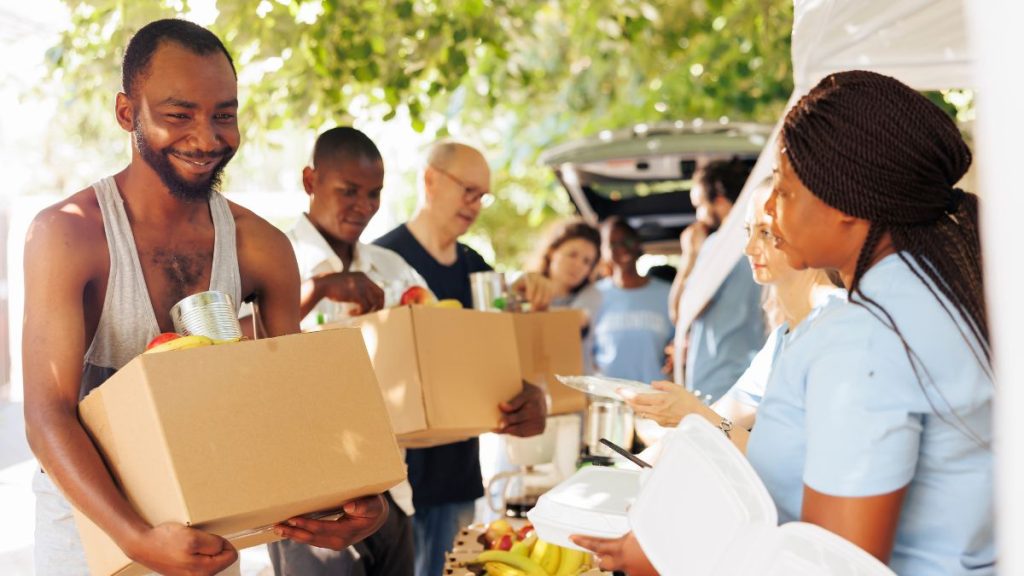Many South Africans know the Gauteng Department of Social Development (DSD) for its link to SASSA grants. Grants like the child support grant, disability grant, or old age pension are often the first thing people think about.
But the department’s work is much broader. It offers a wide network of welfare services, community programmes, and social initiatives. These are designed to help households cope with hardship, empower young people, support families, and build stronger communities.
In 2025 and beyond, Gauteng DSD is focusing on creating pathways to long-term stability, dignity, and independence. This means looking beyond cash grants and providing real support where people need it most.
Understanding the Difference: SASSA vs Gauteng DSD
It is easy to confuse SASSA with the Gauteng Department of Social Development. Both deal with welfare, but they serve different roles.
SASSA is a national agency. Its main job is paying out social grants such as child support, disability, and old age pensions.
Gauteng DSD is a provincial department. It focuses on welfare services, social programmes, and community development in Gauteng.
The two work together. SASSA provides money through grants, while Gauteng DSD provides services that help families and individuals deal with deeper social and economic challenges.
Social Welfare Services
The Gauteng DSD provides a wide range of welfare services to protect and support vulnerable groups.
1. Care and Support for the Elderly
Residential care facilities and frail care homes.
Community support such as home-based care services.
Programmes to protect older persons from abuse, neglect, or exploitation.
2. Child and Youth Care Services
Places of safety for children in immediate danger.
Foster care and adoption services to provide stable family homes.
Child and youth care centres offering housing, counselling, and life skills.
Services for children living and working on the streets.
3. Services for People with Disabilities
Counselling and assistive devices to support independence.
Employment and empowerment programmes.
Accessibility projects to make communities more inclusive.
4. Victim Empowerment and Psychosocial Support
Shelters and safe houses for survivors of gender-based violence.
Trauma counselling and legal support for victims of abuse and femicide.
Victim empowerment initiatives to help people rebuild their lives.
5. Behaviour Change and Rehabilitation
Community-based rehabilitation for substance abuse.
Social behaviour change programmes in schools and communities.
Initiatives to promote gender equality, respect, and responsible living.
Community Development Services
Beyond individual support, Gauteng DSD works to strengthen entire communities.
1. Working with NPOs and Local Structures
Funding and support for non-profit organisations working in social welfare.
Collaboration with local leaders, churches, and civic groups.
2. Skills Training and Youth Development
Skills training centres teaching sewing, IT, agriculture, and entrepreneurship.
Youth development projects that prepare young people for work.
Support for income-generating community projects.
3. Poverty Alleviation and Sustainability
Community gardens to improve food security.
Small business and cooperative development projects.
Programmes that reduce dependency on grants and encourage self-reliance.
4. Grant Reform and Fraud Prevention
Joint work with SASSA to prevent fraud and corruption.
Helping beneficiaries with appeals and access issues.
Educating communities about their rights and responsibilities.
Special Programmes and Policy Initiatives
The DSD also runs special programmes to deal with the broader challenges affecting Gauteng residents.
1. Tackling Social Ills
Substance abuse prevention and rehabilitation.
Awareness campaigns against gender-based violence.
Programmes for offender reintegration and community safety.
2. Policy and Appeals Reform
A better and faster appeals system for social assistance.
Reviews of current policies to make services fairer and more effective.
Stronger monitoring to improve accountability.
3. Empowerment of Vulnerable Groups
Skills programmes for women, especially in women-headed households.
Youth cooperatives and enterprise development.
Disability-inclusive services across education, work, and community life.
Focus Areas for 2025/2026
The Gauteng Department of Social Development has highlighted several priorities for the coming years.
Partnerships and Collaboration
Stronger partnerships with NGOs, faith-based organisations, and community structures.
Support for Vulnerable Groups
Extending the Social Relief of Distress (SRD) grant.
Expanding psychosocial and youth services.
Policy Reviews and Fraud Prevention
Continued reforms to strengthen the grant system.
New anti-fraud technology and community education.
Digitalisation and Access
Moving more services online to speed up delivery.
Expanding mobile access for residents in remote areas.
Sustainability and Empowerment
Shifting from short-term welfare to long-term empowerment.
Promoting food security, small businesses, and sustainable livelihoods.
Real-Life Impact Stories
The true impact of DSD services is seen in communities across Gauteng.
Youth Empowerment in Soweto: A local training centre offers IT courses and entrepreneurship workshops. Graduates have launched businesses and found work.
Community Garden in Ekurhuleni: Supported by DSD, the project feeds over 50 households and generates income through local markets.
GBV Survivor in Tshwane: A woman accessed a DSD safe house, received counselling, and gained legal support. She is now living independently and rebuilding her life.
How to Access Services
Many people are unsure where to start when seeking support. Here’s a simple guide.
Steps to Follow
Identify your need: childcare, elderly support, GBV services, disability support, or youth training.
Visit your nearest DSD office: local service centres are available across Gauteng.
Bring documents: ID, proof of residence, and any relevant medical or legal papers.
Meet a social worker: they will assess your needs and connect you with the right programme.
Stay informed: new services are regularly announced on the Gauteng provincial website.
When to Go Where
SASSA: For social grants such as child support, disability, old age pension, or SRD.
Gauteng DSD: For welfare services like GBV shelters, rehabilitation, child protection, or community projects.
Contact Information
For more details or direct assistance, residents can reach out through:
Website: gauteng.gov.za
Phone: +27 11 355 7600 / 7656 / 2270000
Local offices are the best place to apply for services directly.
Check also: What Documents Are Required for the SASSA Child Support Grant?
The Gauteng Department of Social Development is more than a grant administrator. It is a driver of welfare, empowerment, and resilience. By offering care for the elderly, protection for children, empowerment for youth, and support for victims of gender-based violence, the department plays a critical role in improving lives.
In 2025 and beyond, the focus is on long-term solutions. This means helping people move from survival to independence, and from short-term relief to lasting development. Every resident is encouraged to explore these services, share the information, and help build stronger, more connected communities across Gauteng.










